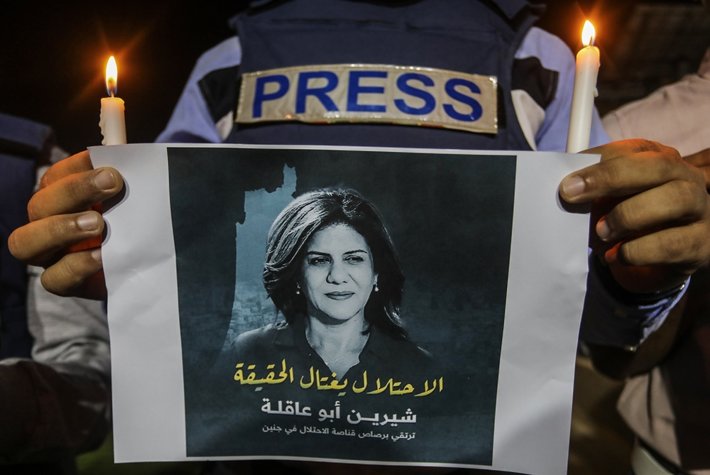For more than half a century, the Middle East has been ground zero for conflict between Palestinian Arabs and Israeli civilians and their military. Adding to the adverse climate are the differences between Arab Christians and Arab Muslims in Palestine. It took the tragic death of a beloved Palestinian Christian journalist, Shireen Abu Aqleh, on May 11, to open the eyes of the region to what makes them similar, far more than what separates them.

The calls for peace between Israel and Palestine have echoed since 1967, and from time-to-time hope for a resolution reigned among the ruins and countless loss of lives on both sides of the borders. But, more often than not, the gaps in violence and turmoil were short-lived, and the vast difference in military strength would ensure that Palestine’s area of existence would continue to shrink—leaving them once again hopeless for a solution and bitter in defeat.
The senseless loss of the 51-year-old journalist who bravely covered the Israeli-Palestinian conflict for more than two decades has profoundly affected the people she worked to keep informed. Both Palestinian Christians and Muslims wrestle with the tragedy as they realize the core conflict between Palestinians and Israelis, regardless of how anyone chooses to worship, will continue to rob them of a peaceful existence.
It was Abu Aqleh’s brother who, in an interview for the Times of Israel while immersed in the pain of personal loss, stated that “Despite how bitter and painful it is for Palestinians and for everyone … I ask the Israeli people to see this as an opportunity for peace. The Palestinian people want peace and aim for peace. This feeling should be shared.”
In the Muslim tradition, it is deemed inappropriate to pray for deceased Christians, but that couldn’t keep tens of thousands of Muslims from honoring her life by attending her funeral. The loss was shared, no matter the belief system.
In her own words, Shireen Abu Aqleh said she chose to be a journalist to be close to “human beings”—it was in death that she brought human beings closer to one another, despite ethnicity, despite religion, and despite borders. The tragedy of losing someone who braved the front lines to keep the conflict sharp in the minds of those who wield the power to achieve a peaceful resolution serves to remind us that we all bleed red.
From its beginnings, the Church of Scientology has recognized that freedom of religion is a fundamental human right. In a world where conflicts are often traceable to intolerance of others’ religious beliefs and practices, the Church has, for more than 50 years, made the preservation of religious liberty an overriding concern.
The Church publishes this blog to help create a better understanding of the freedom of religion and belief and provide news on religious freedom and issues affecting this freedom around the world.
The Founder of the Scientology religion is L. Ron Hubbard and Mr. David Miscavige is the religion’s ecclesiastical leader.


